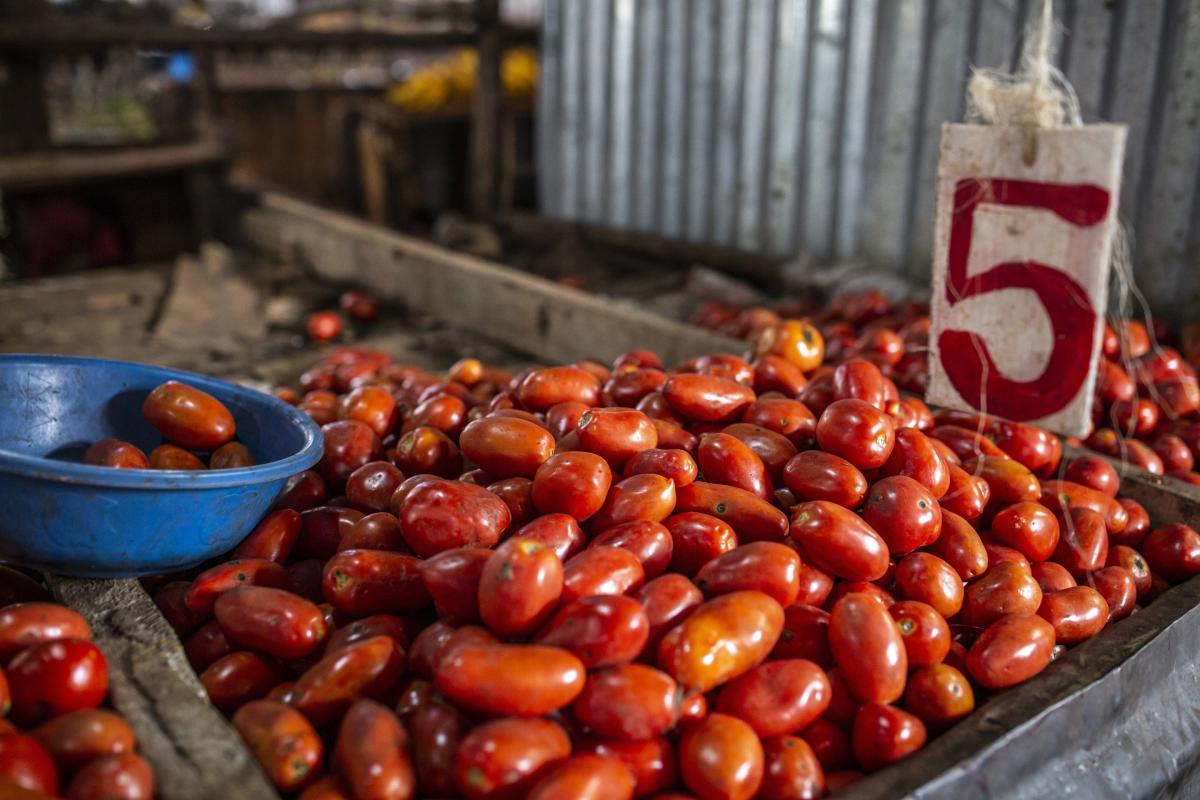‘I’m afraid we’re going to have a food crisis’: The energy crunch has made fertilizer too expensive to produce, says Yara CEO
Katherine Dunn
November 4, 2021·3 min read
The world is facing the prospect of a dramatic shortfall in food production as rising energy prices cascade through global agriculture, the CEO of Norwegian fertilizer giant
Yara International says.
"I want to say this loud and clear right now, that we risk a very low crop in the next harvest," said Svein Tore Holsether, the CEO and president of the Oslo-based company. "I’m afraid we’re going to have a food crisis."
Speaking to
Fortune on the sidelines of the COP26 climate conference in Glasgow, Holsether said that the sharp rise in energy prices this summer and autumn had already resulted in fertilizer prices roughly tripling.
In Europe, the natural-gas benchmark hit an all-time high in September, with the price more than tripling from June to October alone. Yara is a major producer of ammonia, a key ingredient in synthetic fertilizer, which increases crop yields. The process of creating ammonia currently relies on hydropower or natural gas.
"To produce a ton of ammonia last summer was $110," said Holsether. "And now it's $1,000. So it's just incredible."
Food prices have also risen, meaning some farmers can afford more expensive fertilizer. But Holsether argues many smallholder farmers can't afford the higher costs, which will reduce what they can produce and diminish crop sizes. That in turn will hurt food security in vulnerable regions at a time when access to food is already under threat from the COVID-19 pandemic and climate change, including widespread drought.
The company, whose largest shareholder is the Norwegian government, has donated $25 million worth of fertilizer to vulnerable farmers, Holsether said. But Yara isn't able to eat the costs of such a dramatic rise in energy prices, he says. Since September, it has been curtailing its ammonia production by as much as 40% due to energy costs. Other major producers have done the same. Reducing ammonia production will decrease the supply of fertilizer and make it more expensive, undermining food production.
The delayed effects of the energy crisis on food security could mimic the chip shortage crisis, Holsether said.
"That's all linked to factories being shut down in March, April, and May of last year, and we're reaping the consequences of that now," he said. "But if we get the equivalent to the food system…not having food is not annoying, that's a matter of life or death."
Holsether pointed to efforts by the director of the UN World Food Program, David Beasley, the former governor of South Carolina, to raise $6 billion in aid to combat preventable famine by directly targeting outspoken billionaires, including Elon Musk, for donations to the program.
Last week, Beasley called out Musk and Jeff Bezos, who appeared at COP26 on Tuesday, arguing that they could pony up the funds if they wanted to and barely feel the difference. In response,
Musk tweeted that he was willing to sell $6 billion in
Tesla stock if the World Food Program could explain "exactly" how that money would end world hunger.
Food scarcity is already reaching desperate levels in many regions. On Wednesday, Frédérica Andriamanantena, the World Food Program's Madagascar program manager, appeared on a COP26 panel to describe the severity of the country's drought and resulting famine. Andriamanantena, who is from Madagascar, said drought had this year reduced the harvest to one-third of the average of the past five years. Where families had once had comfortable meals, children are now subsisting on foraged plants and cactus leaves.
"That is where the situation is now," she said.
This story has been updated to clarify Holsether's stance on a possible food crisis.
Unlike other shortages, a food crisis is “a matter of life or death,” says Svein Tore Holsether.

finance.yahoo.com


